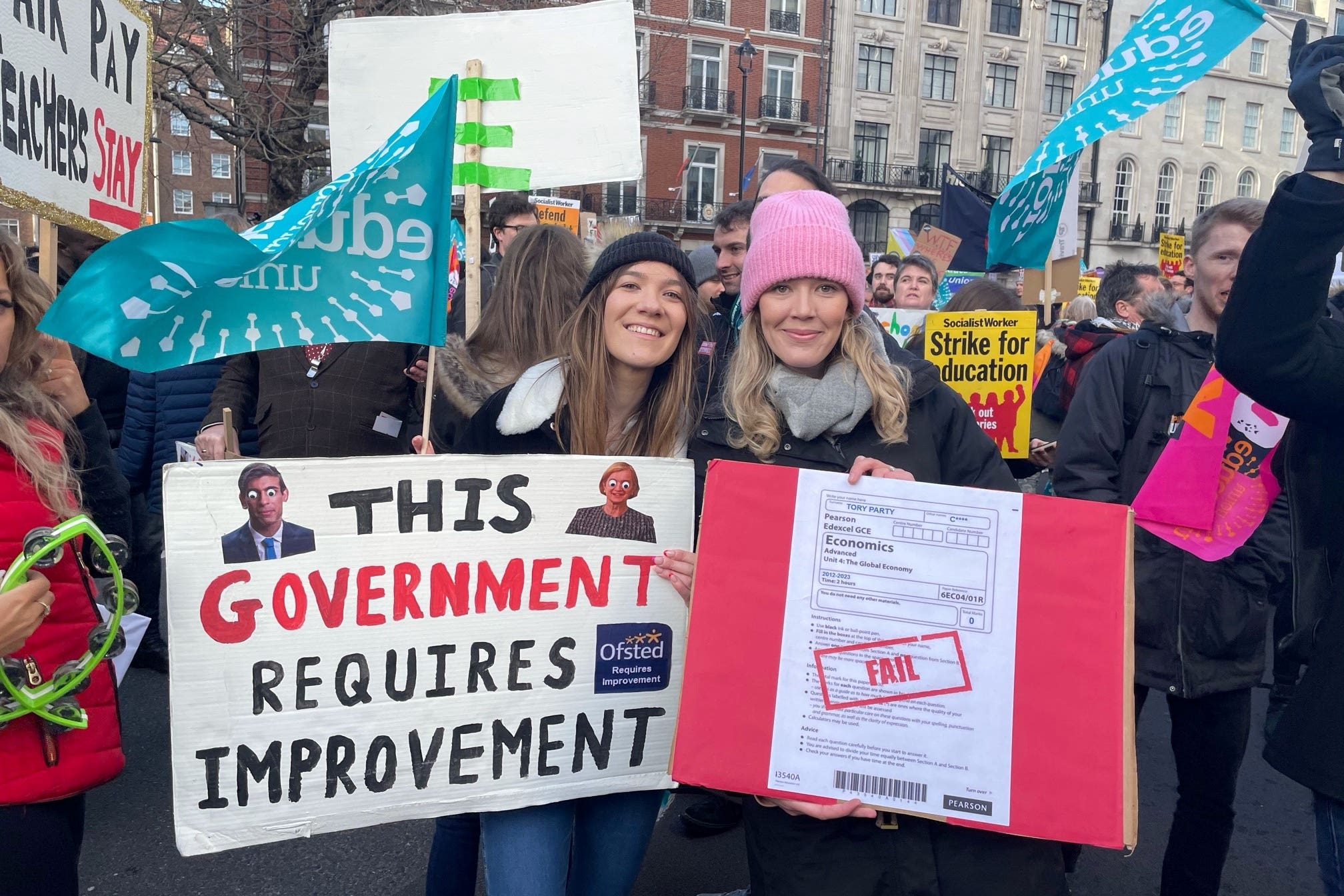Teachers could be forced to tell heads they plan to strike under reported change
Education Secretary Gillian Keegan said it was ‘unreasonable’ if teachers joined strike action without informing their school.

Your support helps us to tell the story
From reproductive rights to climate change to Big Tech, The Independent is on the ground when the story is developing. Whether it's investigating the financials of Elon Musk's pro-Trump PAC or producing our latest documentary, 'The A Word', which shines a light on the American women fighting for reproductive rights, we know how important it is to parse out the facts from the messaging.
At such a critical moment in US history, we need reporters on the ground. Your donation allows us to keep sending journalists to speak to both sides of the story.
The Independent is trusted by Americans across the entire political spectrum. And unlike many other quality news outlets, we choose not to lock Americans out of our reporting and analysis with paywalls. We believe quality journalism should be available to everyone, paid for by those who can afford it.
Your support makes all the difference.The law could reportedly be changed to force teachers to inform head teachers if they plan to strike.
Education Secretary Gillian Keegan admitted that she was surprised to learn that teachers are not legally bound to let their bosses know whether they planned to turn up to class during industrial action.
She said it was “unreasonable” for teachers to fail to announce their intentions to walk out.
The Daily Mail, quoting a Government source, said ministers could choose to “act” and change the law in a bid to give schools time to put contingency plans in place on strike days.
I wrote to them and said, 'If you are going to strike, please inform your head'
The source is said to have referenced the policy in France, saying striking teachers are required by law to give schools 48 hours’ notice if they intend to picket.
“It is ridiculous that unions are able to add to the disruption caused by refusing to provide the basic information needed to make contingency plans,” the source told the newspaper.
“If this is something that is going to become a regular tactic then we will have to act on it.”
Thousands of teachers joined what was the biggest strike in a decade on Wednesday, with up to half a million workers walking out in bitter disputes over pay, jobs and conditions.
Department for Education (DfE) data showed that the majority of schools in England were forced to shut their doors as a result.
On the morning of the strike action, Ms Keegan told Times Radio it was “a surprise to some of us” that the law allows teachers to strike without notifying their employers.
She told LBC she had written to schools asking staff to give their heads notice if they planned to withhold their labour.
“I wrote to them all saying, look, we really do need to minimise the disruption to children’s education,” she said.
“I wrote to them and said, ‘If you are going to strike, please inform your head’, because it’s important that… (they try) to minimise the disruption as much as possible.
“They need to help them (headteachers) in that by being fair and letting them know if they’re going to be striking or not.”
Asked what she would say to those educators who had not alerted their headteacher, the Cabinet minister said: “Well, it seems unreasonable to me.”
The UK Government is pressing ahead with what trade unions have dubbed an anti-strike law in a bid to ensure a bare-bones service level continues when public sector workers are joining industrial action.
The Strikes (Minimum Services Levels) Bill will apply across six sectors, including health and transport, should it be passed by Parliament.
Teachers are not currently included but Ms Keegan said that would remain “under review”.
Downing Street said the law would not apply to education in the “first instance” but suggested that the scope of the Bill could be widened.
The Prime Minister’s official spokesman has regularly said that No 10 was retaining the ability to apply the legislation to schools.
The DfE was approached for comment.